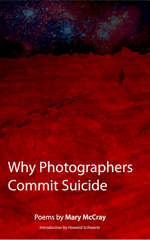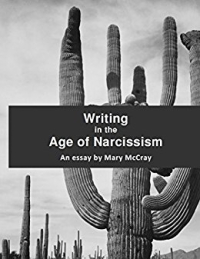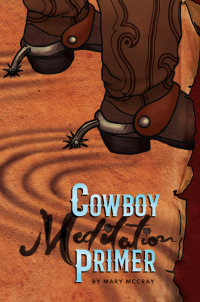What is a Digital Poem
I want to start this digital catch-up by saying I’ve been thinking a lot about what separates digital poetry from digital art which happens to be using words as material. I think this is the main point of contention for paper poets around pieces labeled digital poetry, especially when few if any of the aims of poetry-as-meaning are involved. Many digital artists use words as material and since there’s no narrative element to the thing, they want to put it in the digital poetry bucket (as if poetry is just that nebulous thing that is not narrative or sensical, which is a pretty small view of what poetry is).
So I’ve been trying to come up with some parameters in my own head just to understand it myself. And here’s what I’ve come up with:
- If the piece uses words (language) that are un-readable, or not even meant to be read in the traditional sense (to come to a meaning as a phrase or sentence would): this is digital art,
- If the piece uses words and their meaning is the primary driver of the piece, meaning the piece is meant to be read in a traditional sense: this is digital literature, digital poetry or digital story,
- If the piece can be read in a traditional sense but that’s not entirely the point of the piece or a secondary benefit of it (maybe there is a balance of meaning from both visuals and from words): this is a digital hybrid of art and literature.
We’re almost done with the conceptual essays about computers and it looks like we’ll be going into actual essays about art and hopefully examples of interesting things. These two are by Marshall McLuhan and you know we’d have to pass through McLuhan because he’s the one who famously said, “the medium is the message” which has digital art all over it.
The introduction to two of his essays talks about what the “medium is the message” means, that the delivery medium of any content influences our understanding of it in profound ways we do not often realize. (You can see this clearly with social media arguments on the internet; the internet medium had transformed the way we argue and the ways we tolerate ((or don’t)) opinions that differ from our own).
But McLuhan’s statement was made for television not the internet and his examples go back to the first printing press and how mass-produced books changed the way people thought about…well everything. The introduction also quotes Neil Postman (who wrote Amusing Ourselves to Death) who said, “the clearest way to see through a culture is to attend to its tools for conversation.”
Oh boy.
The first essay is “The Galaxy Reconfigured or the Plight of the Mass Man in an Individualist Society” (1962) where McLuhan talks about “sense rations” and changing patters of human perception, using William Blake’s “Jerusalem” and how our imaginations acclimate to new technologies, how they change how we think, how technology actually facilitated changes from gothic to renaissance to realism in literature. The printing press (or the idea of a popular press) brought to us the idea of a mass consciousness, a group vision, the lack of one single vision, and that all endeavors became “a mosaic of the postures of collective consciousness” and then we started to question, ‘what is truth?’ and then the sheer volume of voices gave us “mental anguish.”
The task of the individual artist became to “tap into the collective consciousness” even if the forms were individualistic and private. He says this occurs both with music and writing technologies. We “behold the new thing” and are “compelled to become it.”
And then he goes into capitalism and market economics and self-regulation of markets and feudal societies confronted with technology. But then he comes back around to how technology can isolate the senses and hypnotize society. How we become what we behold as we are swept away by the novelty. He says, “the most deeply immersed are the least aware.”
We are often lured by the idea of an improved future. And in some cases the new technology does provide improved future (think of the washing machine, for example). Another example is the printing press which brought us the novel itself and the sustained tone of a long story which produced in readers a “feeling of living in the world.” Not too shabby.
The invention of the novel lead us to study the new reader which led to Edgar Allan Poe writing "The Philosophy of Composition" and inventing the detective story (all good there), then symbolist poetry, the reader as co-author, and the nineteenth century mass surrender of unique selfhood, the assembly line, the unconscious, the non-logical.
So that happened.
His second and famous essay is “The Medium is the Message” (1964)
“In a culture like ours, long accustomed to splitting and dividng all things, as a means of control, personal and social consequences of any medium technology is an extension of ourselves.” He says machines usually fragment and decentralize.
Interestingly, he talks a lot about the invention of the electric light, pure information without a message. And he uses this to launch into talking about how the content of the medium is just another medium when you pull back the layers. Writing is really a medium for speech, which is just a medium for our thoughts, which is then a medium for our nonverbal impulses.
Technology changes the scale, pace, and pattern of human affairs. The railroad accelerated time and enlarged the scale of previous human functions. New kinds of cities came to be, new kinds of work and leisure that evolved to be independent of location. Then the plane came and dissolved the railway city.
There are independent consequences in the use of any technology. Again his example of the electric light: what it’s used for is irrelevant; it dramatically changed our lives and our behavior. "Content tends to blind us to the character of the medium." Content is a distraction.
He quotes something my father used to always quote as well because he worked for IBM for many years, probably the original 'thinking outside the box' idea: "IBM is not in the business of making machines, but in information processing."
And McLuhan insists light is a communication medium and it's no coincidence they called light companies “light and power." Electric light eliminates time and space just like the radio, the telegraph, the phone, the TV (and now the internet).
He criticizes technology apologists for being disingenuous when they say technology is the scapegoat for the sins of the world. It's like saying “apple pie is neither good or bad. It is the way that it is used" (and "guns don't kill people…")
There are consequences of innovation. These apologists speak "in the true narcissistic style of one hypnotized by the amputation and extension of his own being in a new technical form."
But it's more complicated (as it always is) than good or bad. The printing press gave us trashy novesl and nationalism, but he says, it has also gave us the Bible (and Choose Your Own Adventure books). Movies brought a world of illusions and dreams, point of view, then cubism happened, the idea of perspective, the interplay of planes, contradictions, instant sensory awareness of the whole…
Like all cultural things, it's not always easy to unravel: “Instead of asking which came first, the chicken or the egg, it suddenly seemed that a chicken was an egg’s idea for getting more eggs.”
That's a lot of omelet to chew right there.




